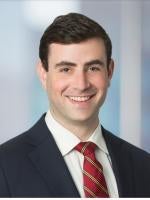Last week, we covered a summary judgment decision holding that posts on the “Science-Based Medicine” blog were not “commercial speech” under the Lanham Act, and therefore the defendant in that case was not liable for false advertising in violation of that statute. In a similar recent decision, a judge in the Eastern District of Michigan dismissed a suit alleging that “Tinnitus Care Provider Certificates” given by the defendant to attendees of a two-day tinnitus treatment training program constituted false advertising in violation of the Lanham Act. The District Court dismissed the suit on the ground that the certificates were not “advertising” within the meaning of the Lanham Act.
Tinnitus is the perception of sound when no actual external noise is present, such as a ringing in the ears. Treatment options for tinnitus include the use of special hearing aids. Such treatment is within the licensed scope of practice of audiologists and otolaryngologists, and some types of hearing aids are available by prescription solely from these practitioners. But hearing aid dealers also are licensed to sell or fit hearing aids. Most state statutes are silent as to whether hearing aid dealers may provide tinnitus care extending beyond hearing aids.
Defendant International Hearing Society (IHS), whose membership consists largely of hearing aid dealers, planned to provide the certificates to individuals who completed a two-day workshop on helping patients with tinnitus. The plaintiff, the Academy of Doctors of Audiology (ADA), alleged that the certificates IHS planned to issue deceptively communicate the message that hearing aid dealers who completed the IHS training program are legally permitted and competent to provide tinnitus care.
The court held that ADA failed to plead a commercial injury caused by IHS’s “advertising,” because ADA did not allege that IHS itself engaged in any advertising. Rather, ADA alleged that IHS planned to issue certificates to nonparties to the litigation who would in turn use the certificates to advertise the nonparties’ business interests, and the court declined to recognize the existence of a claim for contributory false advertising. Moreover, the certificates had not yet been created, so ADA could not point to any specific deceptive statement in the certificates.
The case is Acad. of Doctors of Audiology v. Int’l Hearing Soc’y, 2017 WL 679354 (E.D. Mich. Feb. 21, 2017).





 />i
/>i

